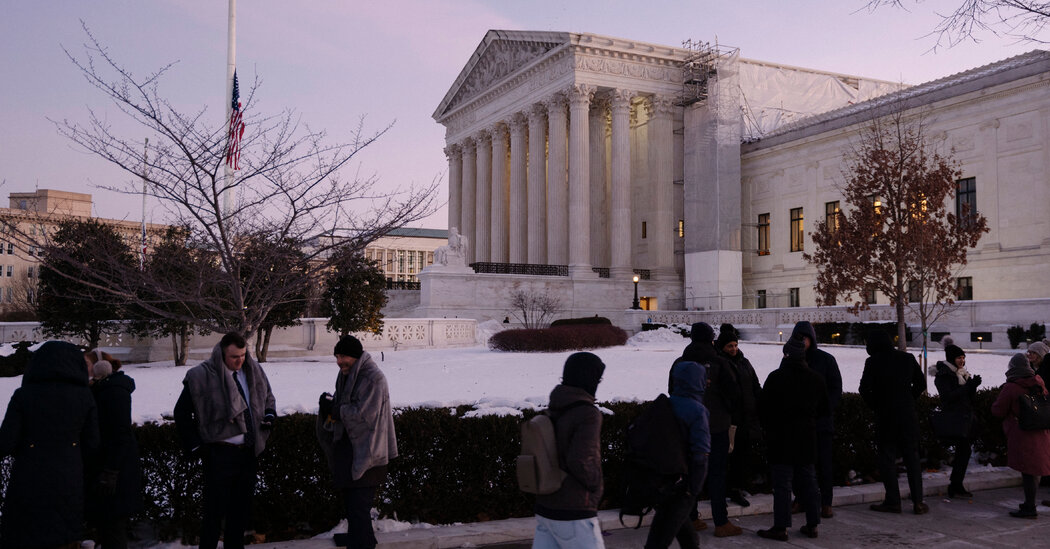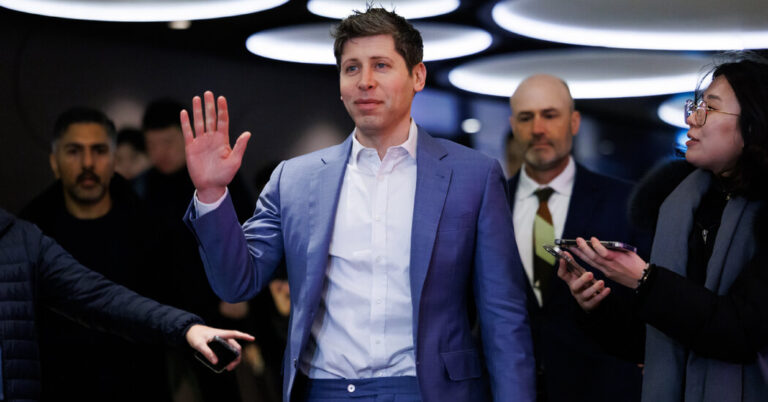The Supreme Court on Friday grappled over a law that could determine the fate of TikTok, a wildly popular social media platform that has about 170 million users.
Congress enacted the law out of concern that the app, whose owner is based in China, is susceptible to the influence of the Chinese government and posed a national risk. The measure would effectively ban TikTok from operating in the United States unless its owner, ByteDance, sells it by Jan. 19.
Here are some key takeaways:
The court appeared likely to uphold the law.
While the justices across the ideological spectrum asked tough questions of both sides, the overall tone and thrust appeared to suggest greater skepticism toward the arguments by lawyers for TikTok and its users that the First Amendment barred Congress from enacting the law.
The questioning opened with two conservative members of the court, Justice Clarence Thomas and Chief Justice John G. Roberts Jr., suggesting that it was not TikTok, an American company, but its Chinese parent company, ByteDance, that was directly affected by the law.
Another conservative, Justice Brett M. Kavanaugh, focused on the risk that the Chinese government could use information TikTok is gathering on tens of millions of American teenagers and twentysomethings to eventually “develop spies, turn people, blackmail people” when they grow older and go to work for national security agencies or the military.
Justice Elena Kagan, a liberal, asked why TikTok could not just create or buy another algorithm rather than using ByteDance’s.
And another liberal, Justice Ketanji Brown Jackson, said she believed the law was less about speech than about association. She suggested that barring TikTok from associating with a Chinese company was akin to barring Americans from associating with foreign terrorist groups for national security reasons.
Still, several justices were skeptical about a major part of the government’s justification for the law: the risk that China might “covertly” make TikTok manipulate the content shown to Americans or collect user data to achieve its geopolitical aims.
Both Justice Kagan and Justice Neil M. Gorsuch, a conservative, stressed that everybody now knows that China is behind TikTok. They appeared interested in whether the government’s interest in preventing “covert” leveraging of the platform by a foreign adversary could be achieved in a less heavy-handed manner, like appending a label warning users of that risk.
Lawyers for TikTok and for its users argued that the law is unconstitutional.
Noel Francisco, representing both TikTok and ByteDance, and Jeffrey Fisher, representing TikTok users, suggested that concerns about potential manipulation by the Chinese government of the information American users see on the platform were insufficient to justify the law.
The solicitor general, Elizabeth B. Prelogar, argued that Congress had lawful authority to enact the statute and that it did not violate the First Amendment. She said it was important to recognize that the law leaves speech on TikTok unrestricted once the platform is freed from foreign control.
She added: “All of the same speech that’s happening on TikTok could happen post-divestiture. The act doesn’t regulate that at all. So it’s not saying you can’t have pro-China speech, you can’t have anti-American speech. It’s not regulating the algorithm.”
The court appears unlikely to wait for Trump.
President-elect Donald J. Trump has asked the Supreme Court to issue an injunction delaying the law from taking effect until after he assumes office on Jan. 20.
Mr. Trump once shared the view that Chinese control of TikTok was an intolerable national security risk, but reversed course around the time he met with a billionaire Republican donor with a stake in its parent company.
If the court does uphold the law, TikTok would effectively be banned in the United States on Jan. 19, Mr. Francisco said. He reiterated a request that the court temporarily pause the law from taking effect to push back that deadline, saying it would “simply buy everybody a little breathing space.” It might be a “different world” for TikTok after Jan. 20, he added.
Source link




